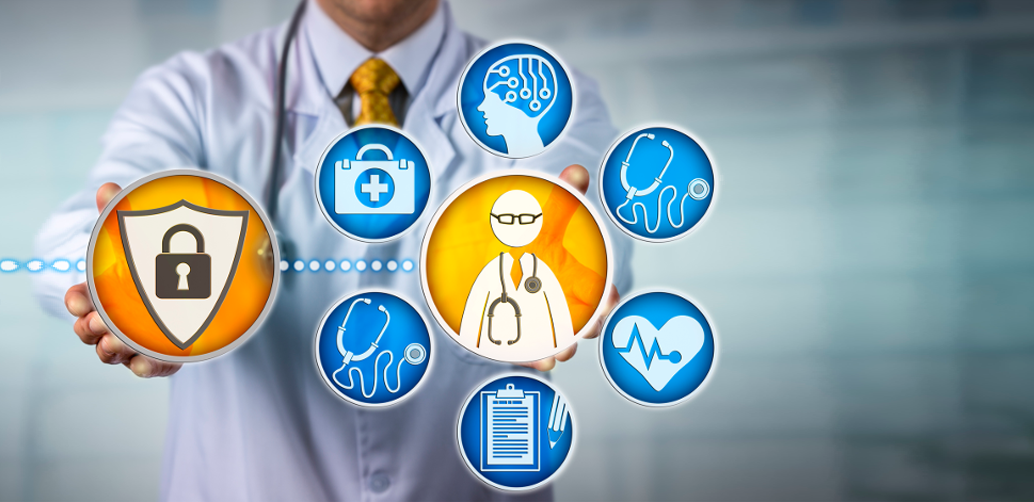Technology has taken us over every aspect of our lives. We are heavily reliant on technical means to ensure the smooth functioning of our day-to-day life. Healthcare sector is no exception in this category. It bases itself on technical developments to deliver the best services to patients and assist the clinical staff.
Earlier the progress of technology was comparatively slower in the healthcare industry. However, breaking of the COVID-19 pandemic and the subsequent lockdown led to the quick adaptation of these technological parameters.
As per a research study, the market size of global healthcare information technologies is said to reach $270.3 billion by 2021 in comparison to $227.5 billion in 2020. The expected CAGR is to be 23.6% during the forecast period.
The usage of technology in the field of medicine is making it convenient for both patients and doctors to receive and do the best at their ends respectively. Intention behind implementing technology in healthcare is to resolve existing issues and make the system multi-functional.
Having said that, it’s vital to know what healthcare shortcomings are overcome by the use of technology. Here are the problems that technology has effectively solved.
1. Healthcare Mobile and Web Apps for Eliminating Remote Access Issues
Problem: In-person consultation has been thought of as the only feasible way to detect and cure medical problems. However, the pandemic did give us some perspective and we came up with solutions that deliver best results even remotely.
Solution: Many remote platforms have come into play and mobile app developers are constantly honing its functionality. This creates a credible platform for exchange of medical advice from doctors to the patients.
Telemedicine has played a significant role in shaping the healthcare system today. With wearables and smartphones that help track health status, technology has acted as a catalyst in the form of AI, ML, Holography, Virtual Reality, and the like.
2. Social Networking Apps for Bridging Gaps in the Medical Industry
Problem: One of the foremost challenges that is posed in front of the healthcare system is that the entire medical community isn’t connected. Connectivity is vital as it helps share information, learning, etc. Having a space where all medical professionals can share and discuss will assist in better diagnosis and treatment.
Solution: Some social networking apps have come into play to gather doctors and persons related to healthcare under the same roof. Herein you can share the recent developments, patient data, photo, PDFs, and the like.
3. Data Management System for Filling in for Lack of Supply Management System
Problem: The lack of an efficient supply chain management system creates havoc on both the front and backend of the system. Failure in proper logistic management creates issues like mismanaged medical inventory/drug or equipment shortage.
Solution: Opting for a conventional supply management system is not feasible as it only leads to monetary wastage. In place, a digital technology can be much handier. An inventory or warehouse management system powered by strong data analytics will help you remain updated and use Graphic User Interface (GUI) for utmost convenience. It also renders impactful insights and meaningful data.
Consequently, medical administration has access to budget allocations and inventory numbers.
4. Cloud and Data Analytics to Resolve Issues of Managing Patient Data
Problem: Massive amount of data is generated in the healthcare domain related to patient’s analytics. It can get quite overwhelming for administrative staff to store and access data as and when needed. With each new database addition, the informational piece becomes even more elaborate and hard to manage.
As the data is quite exhaustive to operate and retrieve at the requisite time, it can sometimes lead to mismanagement, wrong diagnosis, security compromise, incorrect treatment, and many related issues. The consequence can be traumatic for both patients and doctors.
Solution: These days this problem can be easily resolved with cloud-based data management systems and mobile portals. The usability of this portal lies in the fact that it lets professionals access patient’s data in real time. These details may include diagnoses, treatments, medical history, appointments, etc.
As the storage and retrieval of data is carried out on a cloud-based platform, the update happens in real time and has proper security.
Additionally, healthcare mobile apps base themselves on iOS, Android, and other common platforms, making it feasible for doctors to operate throughout the day.
5. Blockchain-Based Database to Dodge Data Sharing Errors
Problem: Irrespective of making numerous advancements in the field of healthcare, there are still some basic challenges that threaten the basics of the medical industry. One of these challenges is the sharing of patient’s information. Conventional methods are inefficient for sharing data, making it not only time-consuming, but also a threat to security of a patient’s confidential details.
Solution: In the need to ensure the sanctity of data sharing in the medical profession, a secure platform is needed wherein information can be shared between different doctors and practitioners. Data management system is a remarkable way of substituting a pen-and-paper approach to data sharing. To maintain utmost security, using a blockchain-based database is the best way possible. It removes any traces of insecurity and promotes privacy.
6. Online Prescription-Based Pharmaceutical Stores to Increase Medicine Accessibility
Problem: As online platforms have become the commonest preference for people, they want everything to be available online. This also includes medicines being on online platforms, which isn’t widespread as of now.
Solution: Having an online pharmaceutical store has become integral, but what must be kept in mind in that it should be prescription based. This will help customers get their medication at the comfort of their home.
What is Ahead of the Medical Industry?
No one ever thought that the medical industry would come so far and that too in a matter of just a year. And there is no denying the fact that technology has an impactful role to play in what has become of healthcare institutions.
However, this is just the beginning of digitalization of the medical industry. Currently, we only see technical aspects at the brim of the industry. But this is to get deeply rooted in the years to come with many more technological parameters paving a way to make healthcare a better and smoothly functional area.

 Web and Full Stack
Web and Full Stack CMS and Frameworks
CMS and Frameworks Online Marketing
Online Marketing Cloud Services
Cloud Services ECommerce
ECommerce Mobile
Mobile



